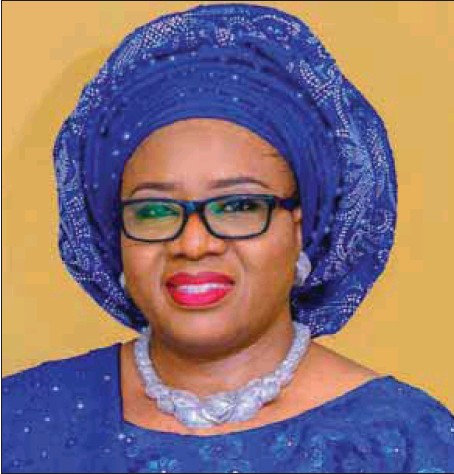Last week December 31st, 2020, we started with Part 1 of the series capturing landmark regulatory initiatives by the Nigerian Communications Commission (NCC).
Today, we are continuing the series with strategic look at how the agency performed in boosting Federal Government’s revenue drive within the period under review and other issues.
Boosting FG’s revenue generation
The total remittances by NCC into the Federal Government’s coffers from 2015 grew and reached N344bn in 2020. The revenue was essentially generated from spectrum sales, operating surplus and sanctions. So, aside spectrum auctions, NCC also engaged in spectrum re-planning, re-farming to optimise the usage of the scarce resource while it continued to address the quality of service (QoS) delivery through effective monitoring of Key Performance Indicators (KPIs) and development of KPIs for Third Generation (3G) and Fourth Generation (4G) networks. All these are in a bid to ensure improved service delivery to telecom consumers. Interestingly, the Commission has received commendation on this financial performance from the House Committee on Telecommunications, who visited the Commission on an oversight function sometime in October, 2020. The committee commended the leadership of the Commission for its transparency in ensuring remittances to FG’s CRF, considering the current revenue drive of the government. The committee urged the NCC to sustain its current template of ensuring effective regulation of the telecoms sector in a manner that would be more mutually beneficial to the industry players, the consumers of telecoms services and to the Nigerian government.
NCC’s approval for the trial of e-SIM, and national roaming
In line with its commitment to always put Nigeria’s telecoms sector ahead of cutting-edge technologies that can revolutionise consumer experience, the Commission granted approval for two mobile network operators (MNOs), MTN Nigeria and 9Mobile, to carry out trial on the workability of embedded Subscriber Identification Modules (e-SIM) Service in Nigeria. The trial, approved to run for a period of one year, will involve testing 5,000 e-SIMs by the two networks, subject to compliance with a number of regulatory conditions. According to Executive Vice Chairman of NCC, Prof. Umar Garba Danbatta, the primary objective of the e-SIM trial is to assess the technical performance of the e-SIM on telecoms service providers’ network towards eventual rollout, if satisfactory. He said the e-SIMs is a technology that will eliminate the need for physical SIM card slots on mobile devices in the near future, adding that the trial is in line with the Commission’s forward-looking regulatory approach to ensure Nigeria’s telecoms ecosystem is in tandem with global best practices.
Similarly, the Commission also granted approval for MTN and 9mobile trial on national roaming service for a period of three months, commencing from October 14, 2020 to end by January 13, 2020.The two telcos are expected to configure their networks to begin test and simulation for customer experience. The trial approval covers a few local governments, designated as the National Roaming geographic area, in Ondo State. Basically, roaming service will enable a mobile subscriber in Nigeria to automatically make and receive voice calls, send and receive data, or access other services when travelling outside a particular network geographical area by utilising the network coverage of other networks with roaming arrangements to access service. According to the Executive Vice Chairman (EVC) of NCC, Prof. Umar Garba Danbatta, the primary objective of the National Roaming Service trial is to encourage network resource sharing among operators. It is will also lead to operational expenditure (OPEX) optimisation and capital expenditure (CAPEX) efficiencies leading to freeing up of resources to expand mobile network coverage to unserved and underserved communities across the country, which will lead to improved Quality of Service (QoS) delivery to subscribers.
Review of InfraCo project for effectiveness
In the year under review, the NCC began a strategic review of InfraCo framework and their funding options. To this end, the Commission constituted a committee to review the framework for the licensing of Infrastructure Companies (InfraCo) and recommend sustainable funding options for effective implementation of the proposed national fibre project. It should be noted that the constitution of the committee was sequel to the requirements of the new Nigerian National Broadband Plan (NNBP 2020-2025) and reports of relevant committees set up by the Federal Executive Council (FEC), which include the Inter-Ministerial Review Committee on Multiple Taxation on Telecommunications Operators over Right-of-Way (RoW) and the Technical Sub-Committee on Right-of-Way for Deepening Broadband Penetration in Nigeria. These requirements and reports relate to the imperative of reviewing the InfraCo framework to cater for the delays in take-off, change in exchange rate, supply chain and other challenges imposed by the COVID-19 pandemic. Commenting on this, the EVC said, “The InfraCo project is dear to the government because of its ability to enhance robust and pervasive broadband infrastructure to drive service availability, accessibility and affordability.”
On the continuous commitment to regulatory excellence, transparency and ethical standards, the NCC has been ranked highest in terms of compliance to ethics and integrity among other sister agencies under the Federal Ministry of Communications and Digital Economy. The outstanding performance of NCC was contained in the recently released Ethics Compliance and Integrity Scorecard (ECIS), 2020 by the Independent Corrupt Practices and Other Related Offences Commission’s (ICPC). With a total score of 81.15 per cent, the Commission topped the list among three other agencies under the Ministry, which featured in the intra-ministerial agencies’ ranking in ethics compliance and institutional integrity. The National Identity Management Commission (NIMC) emerged second with a total score of 74.05 percent; Nigeria Communications Satellite Limited (NIGCOMSAT) came second with a score of 31.9 per cent while the National Information Technology development Agency (NITDA) occupied the fourth position with 17.65 per cent. The report underscores NCC’s critical role as a member of the Anti-Corruption and Transparency Unit (ACTU), which is the Federal Government’s vanguard for promoting ethics and ensuring compliance to ethical codes within the Nigerian Public sector. The ranking by ICPC, in addition to demonstrating NCC’s commitment to the orderly growth and development of the Nigerian telecommunications industry, underscores the Commission’s strategic role as a key enabler of positive change within Nigeria’s socio-economic landscape.
Further to this, the ICPC has on Thursday, December 10, 2020 in Abuja, inaugurated the NCC’s Anti-Corruption and Transparency Unit (ACTU). ACTU is the initiative of the ICPC, approved by the Federal Government to serve as an in-house mechanism for corruption prevention within MDAs, in line with global best practices of building strong institutions and institutionalising good governance in the fight against corruption. During the inauguration, Danbatta noted that that the ICPC itself has recently attested to the NCC’s high ethical values and professionalism as evident in the 2020 ICPC Ethics and Compliance Scorecard (IECS) report, where NCC topped other agencies in ratings. The EVC said the ICPC’s verdict also lends credence to the 2017 report of the Bureau of Public Service Reforms (BPSR)-piloted Self-Assessment Tool (SAT) deployed in MDAs, where the NCC came off with a Platinum Level (Exceptional) award that NCC was a level 5 (Platinum standard) organization, the highest rating possible under the BPSR Assessment.









